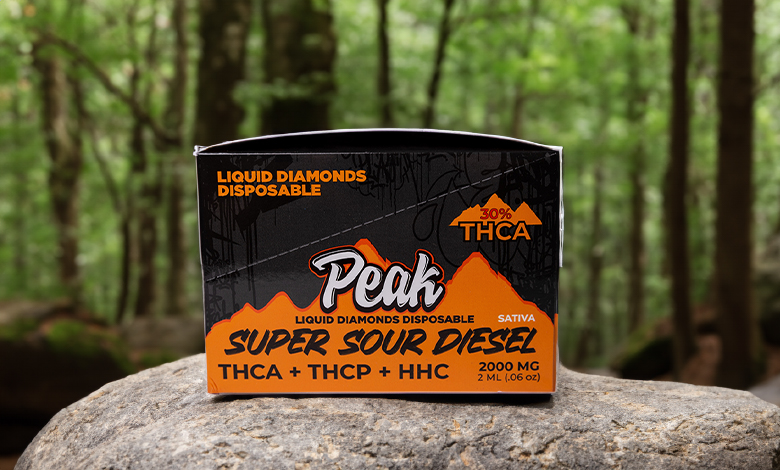Cannabinoids play an important role in determining how cannabis and hemp products affect users’ experiences. The two cannabinoids that have gained the most attention are THCA (tetrahydrocannabinolic acid) and Delta-8 THC (delta-8 tetrahydrocannabinol). Though both compounds are derived from the same precursor, THCA, they have distinct properties and effects. In this comprehensive guide, we will delve into the differences between THCA and Delta-8 THC, exploring their origins, chemical structures, effects, and potential benefits.

Understanding THCA
Raw cannabis and hemp plants contain THCA, a non-psychoactive cannabinoid. It is a precursor to the psychoactive compound THC (tetrahydrocannabinol). The process of decarboxylation is what makes THCA psychoactive when it becomes the same as THC. Users should also be cautious of laced weed, which can be contaminated with harmful substances and lead to unpredictable and dangerous effects. Staying informed and sourcing cannabis from reputable suppliers ensures a safer and more enjoyable experience.
Chemical Structure of THCA
The chemical structure of THCA is closely related to THC, with an additional carboxylic acid group. This acid group is responsible for the non-psychoactive nature of THCA. THC is produced by decarboxylation of THCA when exposed to heat, whether from smoking, vaping, or cooking. Find out more about THCA disposable vape pens.
Potential Benefits of THCA
THCA research is still in its infancy, but preliminary studies suggest it may possess anti-inflammatory, neuroprotective, and antiemetic properties. Some users incorporate raw cannabis or THCA-rich products into their wellness routines, attributing benefits to the potential therapeutic effects of THCA.
Understanding Delta-8 THC
The Delta-8 THC compound in cannabis has structural similarities to the more well-known Delta-9 THC, cannabis’ primary psychoactive compound. While Delta-8 THC occurs naturally in trace amounts in cannabis plants, it is typically extracted and concentrated to produce products with higher concentrations for medicinal or recreational use.
Chemical Structure of Delta-8 THC
As a result of the placement of the double bond, Delta-8 THC displays slightly different molecular structure compared to Delta-9 THC. This small variance results in differences in their effects on the endocannabinoid system, leading to distinct psychoactive experiences.
Psychoactive Effects of Delta-8 THC
Delta-8 THC is milder than Delta-9 THC in terms of its psychoactive effects. The user reports feeling clear-headed with reduced anxiety and paranoia commonly associated with higher doses of Delta-9 THC. Therefore, Delta-8 THC offers a potentially more controlled and manageable experience when compared to other THC formulations. Want to know more about THCA, visit CannaAid Shop.
Legal Status of THCA and Delta-8 THC
The legal status of THCA and Delta-8 THC varies, reflecting the broader legal landscape surrounding cannabis and hemp-derived products. THCA itself, being non-psychoactive, is generally legal in many jurisdictions. Delta-8 THC, however, is more complicated to legalize.
Delta-8 THC is explicitly legal in some regions, but illegal in others. Under the 2018 Farm Bill, hemp-derived cannabinoids, including Delta-8 THC, are legal if they contain less than 0.3% Delta-9 THC. However, state and local regulations can impact the legality of Delta-8 THC products.
Cannabinoid Interactions in the Endocannabinoid System
THCA and Delta-8 THC interact with the endocannabinoid system (ECS), a complex system of receptors, endocannabinoids, and enzymes that maintains homeostasis in the body. Among the physiological processes the ECS regulates are mood, appetite, sleep, and immune response.
THCA interacts with the ECS differently than Delta-8 THC. It does not directly bind to the CB1 receptors in the central nervous system, which are responsible for cannabinoids’ psychoactive effects. Instead, THCA may exert its influence through indirect interactions with other components of the ECS.
The Delta-8 THC binds less effectively to CB1 receptors than the Delta-9 THC. There are characteristic psychoactive effects associated with THC consumption when delta-8 THC is consumed.
Medical Potential of THCA and Delta-8 THC
While research on THCA and Delta-8 THC is ongoing, both cannabinoids show promise in various therapeutic applications.
THCA’s potential anti-inflammatory and neuroprotective properties make it an intriguing candidate for conditions such as arthritis, neurodegenerative diseases, and autoimmune disorders. Additionally, its non-psychoactive nature may make it suitable for individuals seeking relief without the typical cannabis “high.”
Delta-8 THC has milder psychoactive effects and anxiolytic properties, making it a potential option for anxiety management. Some users also claim that Delta-8 THC provides pain relief without the intense euphoria associated with higher doses of Delta-9 THC.
Conclusion
In the dynamic world of cannabinoids, THCA and Delta-8 THC stand out as compounds with unique properties and potential benefits. The Delta-8 THC is milder in psychoactivity than its Delta-9 counterpart, as THCA remains non-psychoactive until decarboxylated.
As research continues to unfold, a more nuanced understanding of the therapeutic potential of THCA and Delta-8 THC will likely emerge. It is essential for users to stay informed about the legal status, potential benefits, and risks associated with these cannabinoids and consult with healthcare professionals when considering their use for medicinal purposes.
In the end, the choice between THCA and Delta-8 THC depends on individual preferences, desired effects, and the legal landscape in one’s location. As the cannabis industry evolves, these cannabinoids contribute to the diverse array of options available to users seeking a personalized and tailored cannabis experience.



